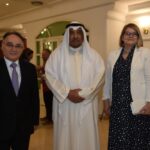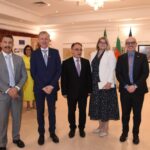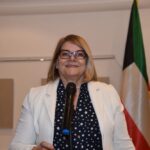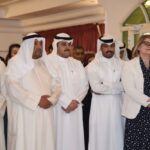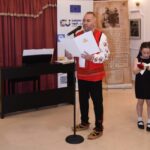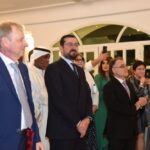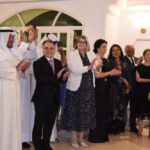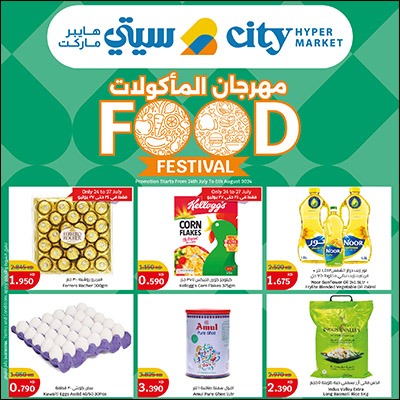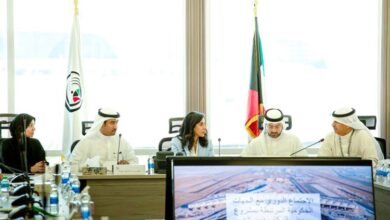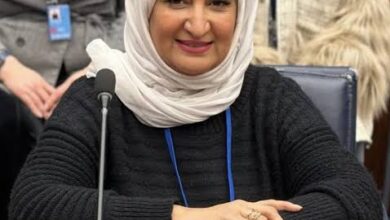Culture plays crucial role in Bulgarian – Kuwaiti relations
H.E. Dimitar Dimitrov, the Ambassador of Bulgaria to the country, stressed that fostering cultural exchange stands as the most effective means to bring people together, enhance mutual understanding, and nurture enduring bonds of friendship.
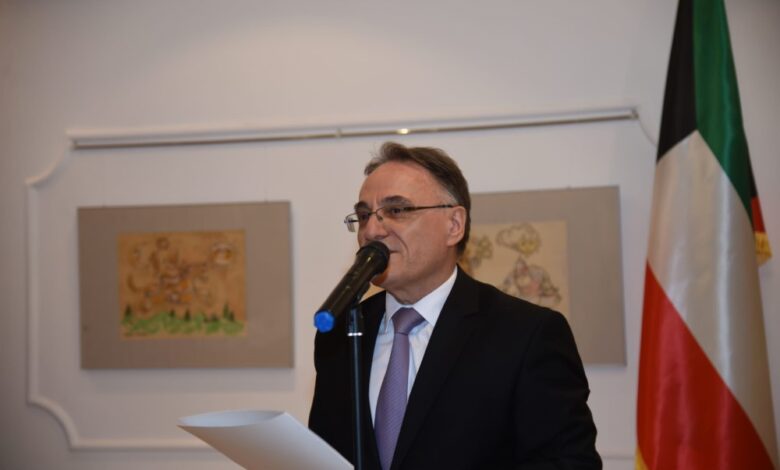
Staff Report
Ambassador of Bulgaria H.E. Dimitar Dimitrov,emphasized that cultural exchanges are the most effective method to unite people, promote understanding, and foster strong bonds of friendship. He noted that culture has always played a crucial role in Bulgarian-Kuwaiti relations.
In a statement to media on the sidelines of the ceremony held by the embassy on the occasion of the ‘Day of the Bulgarian Alphabet, Enlightenment, Slavic Culture and Literature’, celebrated on May 24 each year, Ambassador Dimitrov explained the significance of the day, “On May 24, Bulgaria celebrates the Day of the Saints Brothers Cyril and Methodius, the Bulgarian alphabet, enlightenment, Slavic culture, and literature.”

He also expressed his hope that more exhibitions, cultural initiatives, and visits by artistic groups from two countries would be held in future. “We are pleased to have Kuwait’s support in training our Arabic language specialists,” and we hope that this cooperation will continue and grow. We are particularly grateful, in this regard, to the Language Center at Kuwait University.
The ambassador highlighted that many Kuwaitis are fluent in Bulgarian due to their frequent travels to Bulgaria, their admiration for its heritage, delightful weather, and the renowned generosity of its people. He pointed out that Kuwaitis do not just know Bulgaria through its products in the market, but also through the annual visits made by Kuwaitis to various Bulgarian cities, where many of them own properties.
He noted that despite its small size, the Bulgarian community in Kuwait plays a significant role in fostering friendly relations between the two countries, especially in culture and education. Many members are educators, and on this day, we honor their contributions as they follow in the footsteps of our enlightenment heroes.
He added, “We have concluded the academic year at the Bulgarian school in our embassy in Kuwait. The children of our compatriots attend this school on Fridays, sacrificing their vacation days to learn the Bulgarian language, literature, history, geography, culture, and traditions.”
“Our program today is entirely based on the performances of our schoolchildren. I would like to extend my special thanks to them, their teachers, and their parents for their dedication and enthusiasm,” the ambassador said. He added, “We are proud that this particular Bulgarian event is part of the Europe Month calendar and program in Kuwait. We are pleased to contribute our touch to the diversity and richness that characterizes Europe.”
With Bulgaria’s accession to the European Union in 2007, a new third alphabet (Cyrillic alphabet) was added to the EU scripts. The Bulgarian alphabet appears in official documents of the European Union and is translated into all 24 languages of the Union. “Our letters can be seen on the euro currency, and now, with Bulgaria joining the Schengen area, Cyrillic letters also appear on Schengen visas. What’s interesting about the Cyrillic alphabet is that it was created near the end of the 9th century AD, its creators are historically known, and the alphabet they created is now used by more than 300 million people who speak nearly 50 languages,” said the ambassador.





